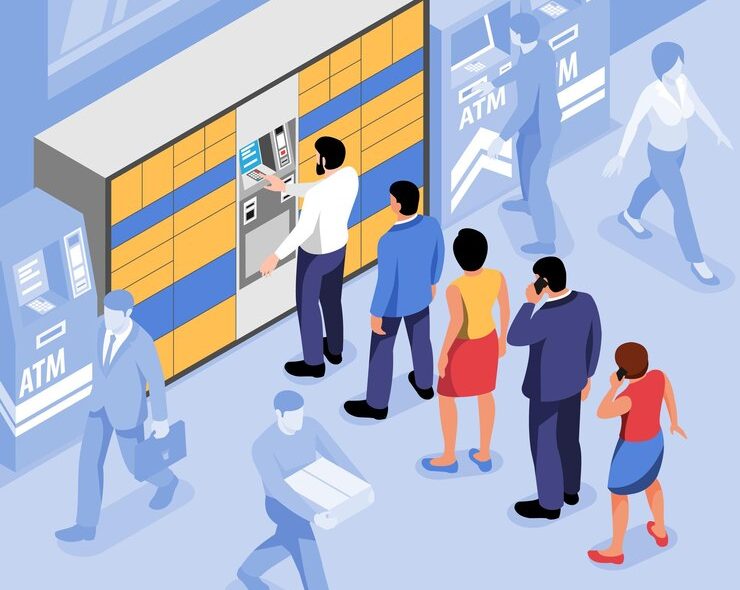Introduction: The Need for Efficient Queue Management
In today’s fast-paced world, customer satisfaction hinges on seamless and efficient service delivery. Long wait times and unorganized queues can lead to frustration and lost business opportunities. This is where a robust Queue Management System (QMS) comes into play. Designed to streamline operations and enhance customer experience, QMS has become a crucial component for businesses in Pakistan.
In this blog, we’ll explore the concept of queue management, its growing adoption in Islamabad, and its significance for businesses across Pakistan.
Understanding the Queue Management System
A Queue Management System is a solution designed to organize and optimize the flow of customers in various service environments. From hospitals to banks and government offices, QMS ensures a smooth, hassle-free experience for both customers and staff.
Core Features of a Queue Management System
- Ticketing System: Customers receive a ticket with a unique number, reducing the need for physical lines.
- Real-Time Monitoring: Provides data on customer flow and wait times.
- Digital Displays: Keeps customers informed about their turn.
- Integration with Mobile Apps: Allows customers to book slots or check wait times remotely.
Benefits of a Queue Management System
- Enhanced Efficiency: Reduces wait times and improves service delivery.
- Improved Customer Experience: Keeps customers informed and reduces frustration.
- Data-Driven Insights: Helps businesses analyze traffic patterns and optimize resources.
- Scalability: Suitable for businesses of all sizes, from small offices to large enterprises.
Queue Management System in Islamabad
Adoption of Queue Management Systems in Islamabad
Islamabad, being the capital of Pakistan, is a hub for government offices, multinational corporations, and healthcare facilities. The demand for efficient customer service solutions, such as Queue Management Systems in Islamabad, is on the rise.
Key Industries Implementing QMS in Islamabad
- Healthcare: Hospitals and clinics use QMS to manage patient flow and reduce wait times.
- Government Offices: Services like passport processing and tax filings benefit from streamlined queues.
- Retail Outlets: Large stores and shopping malls enhance customer satisfaction with efficient queuing systems.
- Financial Institutions: Banks in Islamabad use QMS to manage the high volume of daily transactions.
Queue Management System in Pakistan
The Growing Need Across the Country
The implementation of Queue Management Systems in Pakistan is not limited to urban centers like Islamabad. Businesses in cities like Lahore, Karachi, and Faisalabad are also recognizing the value of efficient customer flow management.
Challenges Addressed by QMS in Pakistan
- High Customer Volume: Handles large crowds effectively, especially during peak hours.
- Limited Resources: Optimizes available staff and infrastructure.
- Customer Dissatisfaction: Enhances service quality, reducing complaints and improving loyalty.
Government and Private Sector Adoption
- Public Sector: Government offices nationwide are adopting QMS to ensure efficient service delivery.
- Private Sector: Retail, healthcare, and financial institutions are leveraging QMS for competitive advantage.
How to Choose the Right Queue Management System
Factors to Consider
- Customization: Ensure the system can be tailored to your specific business needs.
- Scalability: Choose a system that grows with your business.
- Ease of Use: Both staff and customers should find the system intuitive.
- Cost-Effectiveness: Balance initial investment with long-term benefits.
- Technical Support: Reliable vendor support is crucial for smooth operation.
Future Trends in Queue Management Systems
AI-Powered Systems
Artificial Intelligence is transforming queue management by enabling predictive analysis, automated routing, and personalized customer experiences.
Cloud-Based Solutions
Cloud technology allows businesses to deploy scalable and cost-effective QMS solutions with remote management capabilities.
Integration with IoT Devices
IoT integration enables real-time monitoring of physical queues, enhancing operational efficiency.
Mobile-Friendly Solutions
Mobile apps are becoming an integral part of queue management, offering customers convenience and reducing physical congestion.
Conclusion: The Impact of Queue Management Systems
The adoption of Queue Management Systems in Pakistan, particularly in cities like Islamabad, is a testament to the country’s commitment to improving customer service. By investing in QMS, businesses can not only enhance operational efficiency but also foster customer loyalty and satisfaction.
FAQs
1. What is a Queue Management System (QMS)?
A Queue Management System is a tool designed to organize and optimize customer flow, reducing wait times and improving service delivery.
2. Why is a Queue Management System important for businesses?
QMS enhances efficiency, reduces customer frustration, provides valuable data insights, and improves overall service quality.
3. Where are Queue Management Systems commonly used in Islamabad?
QMS is widely used in healthcare facilities, government offices, retail outlets, and banks in Islamabad.
4. How does a QMS benefit customers?
Customers enjoy shorter wait times, better service organization, and clear communication about their turn or service status.
5. What are the future trends in Queue Management Systems in Pakistan?
Emerging trends include AI-powered systems, cloud-based solutions, IoT integration, and mobile-friendly applications for enhanced convenience.












